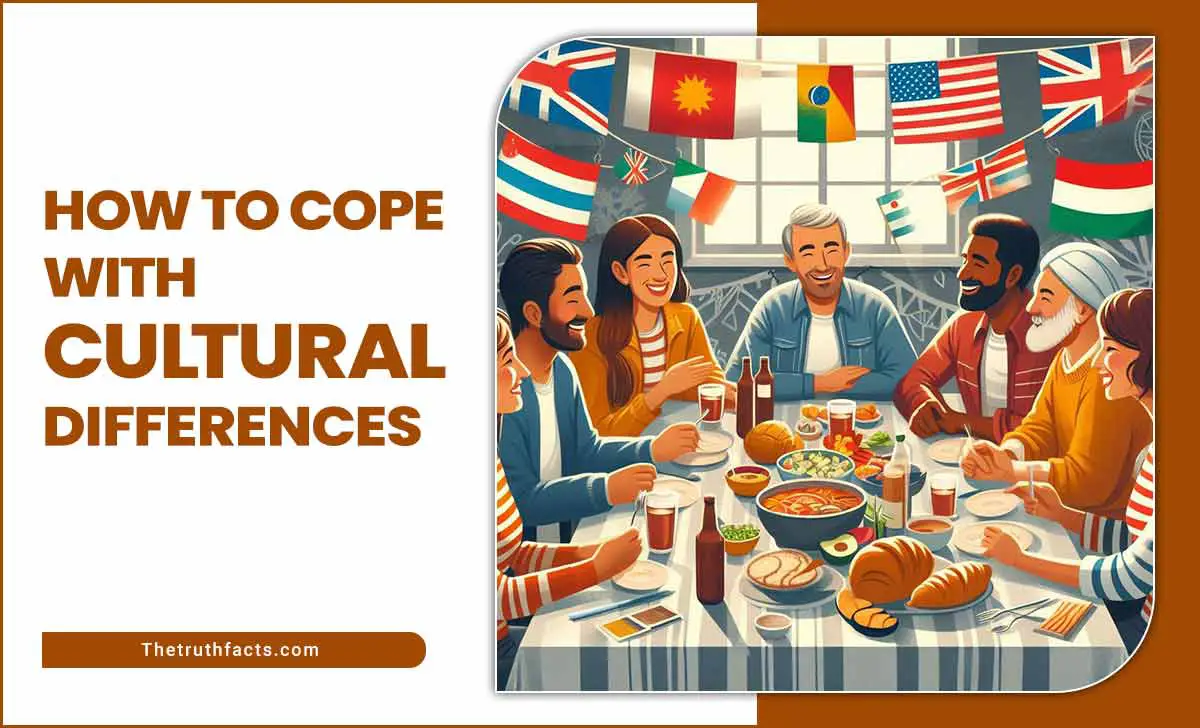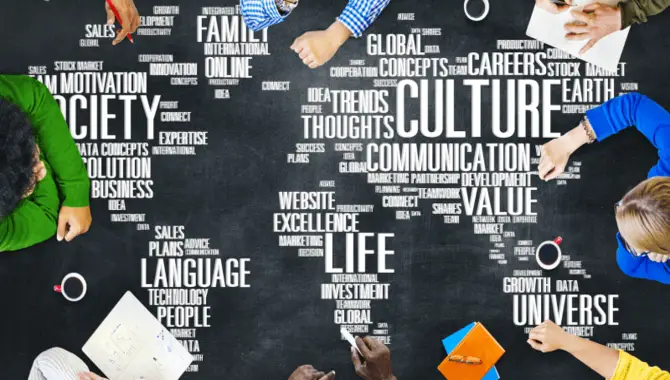Cultural barriers are the different values, beliefs, and customs that exist between different cultures. They can lead to misunderstandings and conflicts, which can be pretty frustrating.
Effective coping mechanisms include understanding the culture of the person you are working with, being culturally sensitive, and avoiding cultural clashes as much as possible. Several cultural differences can be challenging, from different eating habits to work hours. That feeling of discomfort when you’re in a different cultural environment? You’re probably feeling it right now.
Feeling tense, confused, or uneasy when you are in a diverse cultural background is expected. Today, people are constantly exposed to different cultures and expected to perform well, even in foreign territories. But how do you cope with cultural barriers while maintaining professionalism and good work ethics? Read on to discover the 10 practical ways to help you manage cultural differences and ensure you perform well at work.

10 Tips To Cope With Cultural Differences

Many books and articles on cultural differences can help you in your work. Having a mentor who can guide you through the challenges of working with people from different cultures is also valuable. Practicing cross-cultural communication can also be very helpful in overcoming cultural barriers.
Be patient and open-minded when dealing with people from different cultures – it may take time, but eventually, you will get through it successfully. There are many ways to cope with cultural differences, but it’s important to respect different cultures and try to understand the different perspectives of others.
1.Ensure Clear And Polite Communication.

Cultural differences can be challenging when communicating with someone from a different culture. Communication must be clear and polite regardless of the situation, whether it’s a business meeting or casual conversation. It’s also essential to avoid making assumptions about the other person’s intentions. When communicating with someone from a different culture, it’s helpful to understand the language and customs.
This will help you better understand each other and build trust and rapport. You can successfully engage in meaningful conversations about shared goals and interests by learning about each other and communicating clearly.
2.Learn About Different Cultures.
There are many ways to learn about different cultures. For example, you can attend cultural events, read books about diverse cultures, and watch documentaries about different societies. Cultural diversity can be a great way to challenge your assumptions and build empathy for others. By understanding other cultures, you can better understand yourself and your own beliefs. By learning about different cultures, you can better understand the world we live in today and build a stronger community.
3.Work Towards Accommodating Cultural Differences.

When interacting with people from different cultural backgrounds, it is essential to be aware of your own cultural biases. It is also necessary to be patient and understanding when dealing with people from different cultures. By following these tips, you can positively improve your interactions. There are many effective ways to cope with cultural differences, and by using the information listed here, you can successfully navigate these interactions.
4.Share Knowledge.
It’s essential to be aware of cultural differences when interacting with people from different cultures. Whether through work or social settings, it’s beneficial to help ease the transition by sharing knowledge about the culture you’re interacting with.
Being aware of cultural differences and learning about different societies can help promote cultural understanding and reduce potential misunderstandings or uncomfortable situations. It’s always best to be respectful and inclusive in your interactions with people from different cultures.
5.Employ Diversity Training.

Copying with cultural differences can be a tricky business. If you don’t have the proper training and guidance, it can be easy to make mistakes or offend someone from a different cultural background. To best handle cultural differences, it’s essential to understand the cultural norms of the people you are working with. Diversity training is an effective way to learn how to deal with different situations and interactions.
It can help trainees better understand cultural norms and customs in a workplace. In addition, diversity workshops can focus on specific aspects of cultural differences, such as communication or team-building. These workshops can help promote positive cultural awareness and diversity within your organization.
6.Adjusting Your Expectations
When traveling to a new country, it is essential to adjust your expectations. This will help you enjoy the experience and avoid getting frustrated. To change your expectations, it’s helpful to understand the cultural norms and norms of the society you’re in. For example, it may be the cultural differences between men and women who shake hands differently.
Or it may be acceptable to address people only by their title (e.g., Mr., Mrs., etc.). When dealing with people from different cultures, it’s essential to be respectful and avoid making assumptions about their behavior, language, or attitudes. Instead, it can help to learn about the culture through cultural activities, presentations, and tours.
7.Demanding Equality And Respect

It can be challenging to maintain a calm and assertive attitude. When dealing with cultural differences, It’s essential to be aware of them before encountering them. You can survive encounters with demanding people by maintaining a clear and concise perspective. Be prepared to explain your point of view calmly and clearly. Remember that not all people from different cultures share the same values or philosophies. However, you can successfully navigate these challenging encounters by being respectful and understanding.
8.Ignoring Or Avoiding The Offending Behavior
There are a few practical ways to approach the situation regarding cultural differences. One way is to understand the behavior’s reason and appreciate the cultural context within which it occurred. If you feel that you need to address the issue directly, be prepared to listen carefully and respond in a respectful and supportive way. Ultimately, it is essential to remember that everyone experiences cultural differences in their way. You can successfully manage any challenges by approaching the situation with patience and understanding.
9.Make An Effort To Learn About The Culture You Are Visiting.

Copying cultural differences can be challenging, but it is essential to make an effort. When visiting another culture, it’s helpful to learn about the culture you are seeing. Taking the time to learn about the customs and traditions of the people you meet can allow you to fit in better and have a more meaningful cultural experience.
It’s also respectful to avoid making negative comments about their culture, as it can be easily interpreted as disrespectful. Ask if you have any questions or concerns about coping with cultural differences! By trying to understand and manage cultural differences, you will have a more enjoyable and rewarding experience abroad.
10.Respect Cultural Norms And Values
To be successful in any relationship, it is essential to respect cultural norms and values when interacting with people from different cultures. For example, it is common for people from different cultures to have different ways of dressing and behaving, making it uncomfortable or unfamiliar for people from a single culture. When engaging in new social interactions, it is essential to be patient and understanding and not hesitate to ask for help if you feel overwhelmed.
However, it is also important to remember that everyone experiences life differently, and your culture is only one part of who you are. By respecting cultural norms and values while interacting with people from different cultures, you can develop respectful and effective relationships worldwide.
How To Deal With Different Communication Styles?
A different culture can make communication between other parties a little challenging. However, understanding cultural differences and how they affect communication can go a long way toward easing cultural tension. Try using active listening and nonverbal communication to understand the other person’s point of view.
This will help you better understand their perspective and frame your conversation accordingly. Another important aspect of cross-cultural communication is being flexible and open to changing your approach as the situation demands it. This will help you connect more effectively with the person you are communicating with.
Getting to know the person you are communicating with better is vital before making any assumptions or stereotypes about them. This will help you have a better understanding of their culture and values. Regarding communication styles, it is essential to use humor and sarcasm judiciously when interacting with people from different cultures, as it can add value to discussions. Regarding personal space boundaries, never force your opinion onto someone else, as they may not appreciate this. Also, it is vital to respect cultural differences in communication, as not all people from different cultures are alike.
Conclusion
If you are working in a multicultural environment, you must be aware of the different cultural norms and customs that may be unfamiliar or intimidating to you. By learning about these customs and adapting to them as necessary, you can minimize the impact of cultural differences on your work and personal life.
When traveling to another culture, it’s natural to want to fit in. But as we mentioned above, cultural barriers can make it challenging to fully understand and connect with the people around you. It is essential to be aware of cultural differences when interacting with people from other cultures.
By learning about different cultures, being respectful, and adapting your communication style, you can help everyone get closer. Coping with cultural differences is a journey that requires time and practice. However, applying the above tips regularly on dealing with cultural differences will make it easier over time (hopefully not so scary.).
Frequently Asked Questions

I’m a writer and blogger who loves to talk about entertainment, culture, and relationships. I love to share my thoughts and insights on these topics, and I’m always looking for new ways to engage with my readers. I’m also a big fan of learning new things, so I’m always exploring new areas of interest.
